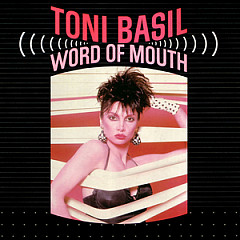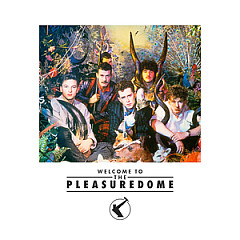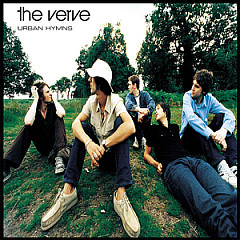
Dave Cousins has been the Strawbs frontman since the beginning, though I wonder if he'd like that term (I didn't think to ask). Cousins comes across as a down-to-earth guy who is more interested in talking about the contents of his music than about himself. At the start of our interview he let me know he was a couple wine glasses into the night and looking forward to a fun conversation. He didn't act at all like one of the United Kingdom's most iconic folk figures. Where I come from, we'd say "Dave Cousins is a good dude."
When Cousins really lights up is when talking about his lyrics and the meanings of his songs. In answering my questions, he'd sing bits of the songs in between talking, as though he was fully immersed in the song in his head. My impression was that he is his music just as much as his music is him, and he'd be living that music even if he never made a single dollar off it.
In typical Cousins/Strawbs fashion, the new Settlement album deals with the times we are living in - namely, the coronavirus, social isolation, and hoping for better times. There are other events in there, such as the conflict in Syria and the death of George Floyd, but it's the coronavirus and its lockdowns that overshadow everything else.
Jeff Suwak (Songfacts): Hello, Mr. Cousins. Thanks for taking the time to talk with us. Let's start out with the making of your upcoming album, Settlement.
Cousins: It was the most extraordinary experience of any record I've ever made because I'm not even living in my own house at the moment. At the beginning of the first lockdown, there was a flood in the cellar of my house. Because of all the problems that come with builders coming in, I've moved to a friend's house and I've been here ever since. I've been here getting on for a year.
Making the album meant that I had to start from scratch. I used to have a Yamaha mixer with a lovely monitoring system and a beautiful microphone, but I gave it all away, and I didn't expect I would ever have to use such a thing again. But when this lockdown came in, I had no equipment, so I've had to buy equipment.
I started out and found Blue Weaver, who produced the album. I said, "Blue, what have I got to get?" And he said, "Well, I'd recommend that you buy a little digital recorder because it's perfectly fine." And then he took me through the settings of it and doing it on 24-bit, 48-bit, and ongoing.
This little thing arrived that I could hold in the palm of my hand, and that was my recording machine. So, I think, Well, I'd better get myself a microphone. So I bought one, a small Neumann, which is absolutely fantastic. I think it's a fabulous microphone.
It's unbelievable. I have recorded all of my guitar parts and vocal parts on that recording machine totally on my own using the laptop to play the backing track, listening to it through a click track through headphones while singing my vocals. Then I sent that over to Germany, where Blue Weaver was producing it. A month later we had sorted out where he was supposed to put over the guitar part because I recorded the guitar parts separately. Then it worked perfectly well.
But, you know, the biggest difference of all was the fact that when you're in a recording studio, you've got a recording engineer there saying, "Move into the microphone, move back from the microphone." There are two members of the band sitting in the studio with the engineer listening to what you're doing, and you're putting on a performance for them. But with this situation, I was singing entirely to myself. I had to do four or five takes of each song, each verse, then send it over to Blue Weaver, who then had to go through and select the best lines out of it. The job he did was extraordinary.
Songfacts: Did you find that it was harder or easier to evoke the proper emotion when you didn't have people in the room while you were recording?
Cousins: I had to perform to myself. That meant I really had to concentrate on what I was singing about. The great thing about the songs on this album is that they are about the environment we're living in at the moment with the coronavirus around us.
With being in self-isolation, I hardly ever get out of the house. I don't walk down the road. In fact, we've had snow here, the last few days on the roads have been too icy to even walk up the garden path, so I've hardly been out of the house. I maybe go once a week over to my house to make sure it's still there and it hasn't collapsed. I go for the occasional walk to keep a bit of exercise going and keep my legs going.
Luckily, the house I'm living in has got lots of stairs, and I have to keep going up and down the stairs. But the reason the songs were so important is that they were written about actual events. I was singing a story while I was singing those words in isolation. I was concentrating on singing, I was singing those words and telling people what the story of the song is about.
Songfacts: So that's a great segue into the next question, which is about the line, "There comes a time when every settlement is due." That seems like a key into the album and into the album's title track.
There was such confusion within the government [during the coronavirus outbreak]. There were so many misguiding statements being issued by the government that there was an incredible degree of anger about it. Not just on my part, but the public as a whole. The public was told, "You've got a lockdown, you're not allowed to go out." And people said, "What does it mean?"
Then gradually, they said, "Well, you can go out and do this. No, you can't go there. Yes, you can meet up with six people who know you." There was total confusion. The anger came out in that song.
I wasn't just reflecting my anger, I was reflecting the anger of all society. When you look back at Strawbs material through the ages, there's always been this element of social injustice and protest in it. If you go back to "Martin Luther King's Dream" on very early albums, singing that song "Martin Luther King's Dream" in front of Coretta King when she first ever came to the United Kingdom to launch the Martin Luther King Foundation, I saw a Black Power sign for the first time when people in the audience stood up and raised their hands.
Then the song "The Battle" was written about equality. "The Hangman and the Papist" was about Northern Ireland. "New World," the same.
The song "Sheep" was written about the Vietnam War and burning draft cards. People don't realize this, but if you think about the song "Sheep," the first line gives it away: "July the fourth in the market town." It's about being sent to the slaughter, the sheep being sent to the slaughter and young kids being sent to the slaughter in Vietnam.
All the way through Strawbs material, there has been this element of social upheaval that we're singing about, what is happening in society. I believe the longevity of the band is that people identify with the songs, and they mean something. That's why for 50 years people go back to those songs and remember them all their lives.
Songfacts: Well, perfect time to talk about "Strange Times."
Cousins: Certainly.
[sings] Strange times we are living in, strange times.
When I wrote the song, it was back about nine months ago when we were in lockdown. The whole thing was so uncertain. I thought about being in the band and what it what it was like. The last verse gives it all away:
Open the windows wide
Let the fresh air flow inside
For heaven's sake, please
In comes the sound of marching bands
Footsteps on the shifting sands
The sands were shifting all around us on
There's the band trying to walk across those shifting sands. I have not seen one member of the band face to face for over a year now. That's how extraordinary this record is. We've all communicated by email, sometimes by telephone, but not very often, hardly ever. I talked to Blue Weaver by Zoom, but other than that, I haven't seen anybody. Strange times.
When I sat down and wrote that first verse, memories come in endless streams and I started reflecting back: "Broken dreams don't deny the die's cast footsteps from a frozen passed on."
The whole thing was reflective, sad but nonetheless objective. In hoping that we are going to get out of this.
Songfacts: While you were making this with all the musicians that you've been making music with for so long, did it give you a sense of emotional relief to be able to play with them again, or did it accentuate the isolation, the fact that you were still separated?
Cousins: I think it brought us together in one aspect in that we had to individually send our parts in, but we had to really think about what the parts meant. When I sent the songs out, the lyrics were written out, and I explained what the emotion of the song was about, so that when they played the guitar parts or played the bass parts or keyboard parts, they understood what the song was trying to convey so you could actually get a degree of emotion in it.
We had a chart with numbered bars, believe it or not, with the words written out alongside it, with it highlighted in color as to where the guitar parts came in: "Dave Lambert, Dave needs to play a guitar solo between bars 57 69. Dave Bainbridge, the part should come in at the end of 'Settlement.' We want a fiery organ sound because this is angry and violent, and you've got to put that across." So you had to do it in the spoken word and the written word rather than being able to communicate directly.
So to an extent, it made everybody concentrate on what the lyrics were on. That again, I think, comes out in the way that the song sounds.
Songfacts: Speaking of lyrics, you have "Better Days," which is a celebratory song to me, happy. But in parentheses in the title it says, "Life is not a game." What is the meaning there? Because that seems like a severe statement in an otherwise light song.
Cousins: Because I'm singing about how better days will surely come again when we're in the height of coronavirus and we still are. Better days will surely come again. But at the end of the verse, I sing:
Life is not a game
Times are tough
Life is not a game
But I'm talking about being young and how happy days were here. And there's a nice sort of humorous dig at London Pride, which is a beer that I used to enjoy. So that was a humorous sort of dig, and then I think better days will surely come again.
But then Blue had the idea of putting in the last verse in a minor key, and suddenly it goes into time for reflection:
No time left to change direction
Times are tough
Life is not a game
Better days
We have all seen better days, so it goes in that way. It takes you through on the whole gamut of emotions through hoping that it's going to get better, and the grim reality is that it may not.
Songfacts: I'm glad I asked that question, because I think that information adds a lot to the song. How about "Liberty?"
Cousins: That's a Chas Cronk song and it expresses his emotion about being locked down again and looking hopefully for a place called Liberty. I had to ask him what he wanted when I put the lyrics on the sleeve, is it a capital L or is it small l? Are you looking for liberty, or are you looking for a place called Liberty? And it really is looking for freedom and looking again, looking for a way out of being as constrained as we are.
Songfacts: That's how "Flying Free" feels. That to me was maybe the most emotional song on the album. So, how about "Champion Jack?" Is that about an actual boxer?
Cousins: No, it's about my father. In the words of the song, I deliberately didn't write "father," I put "my hero," because I didn't want to make it so obvious. But it was written about my dad.
He was a light-heavyweight boxer. and he showed me how to box. I learned to box southpaw. I never lead with my left hand when I'm standing up to fight somebody, which I did once at school when I was 11. My right hand leads.
But, sadly, he got leukemia and passed on. He fought it in the way that he fought all the way through his life, and it's just the memory of him.
Songfacts: So did you win that fight on the playground?
Cousins: I think I did. I peppered him with punches.
Songfacts: Fantastic. How about "Quicksilver Days?"
Cousins: Being in the state we're in now and looking around the world and what is going on in the world, and of course, I've envisaged the whole of the song "Quicksilver Days" going into it.
It was written after seeing the death of George Floyd on the television, on the news channel, and being absolutely horrified by it. I saw it as a song calling everybody to come together and be together because however different we may seem, we all have a perspective on the world. We are, in fact, always one.
We are everyone, but leading into that you go through the troubles that air in the world at the moment. In Lebanon they were bombing, then into Syria. There's a story in every line.
Once we went dancing through quicksilver days
That was going out and enjoying ourselves
Sad is the heart that is resting at last
We're very sad about what's going on
Fountains still flow with endless tears
They wouldn't even let a beautiful fountain alone. To me, it's a symbol of endless tears. Lessons reflect from history past. The whole song is really reflection on societies, but again, written from being in the perspective of being locked down with no way of getting out of it.
The most potent, powerful verse on the whole album to me is:
Towers that once sheltered us
Crumble in ruin all the buildings that have been bombed out in these terrible destructive wars
The fiery reign of vengeance fulfilled floodwaters riding, cover our heads
We lament for those whose blood has been spilled
That's the whole feeling of the Strawbs over the years, coming out talking about social upheaval in the world, inequality, social injustice. It's been the theme that runs through our music through the years and the music has always reflected what's going on in the world around us, whether it's personal events with us as individuals or whether it's reflecting what's going on in the world as we see it through.
Songfacts: A lot of musicians lately have been doing live shows online, kind of digital tours of their albums. Do you have any intention of doing that with this one?
Cousins: No, that's an easy answer. No.
We have never played them [the songs of Settlement] together, so we wouldn't have the faintest idea of how to perform them live. When we do get back to performing live, it'd be a different thing again.
It's gonna be quite tricky working out which of these songs we could actually perform on stage. Certainly, "Settlement" will be one that will work very well. But the danger with songs like "Settlement," or any of these political songs, is that they have a sell-by date because they're written in a moment of anger, perhaps, or of social upheaval. That time of social upheaval passes by and the song becomes irrelevant, so you have to be very, very careful with it.
In terms of the album, I can also see maybe doing "Each Manner Of Man." I think that song turned out very, very well. In fact, it's probably the most profound song I've ever written. I wrote the lyrics for it and John Ford in New York came up with the tune. In fact, today he sent me a video of him performing to it, and we're going to put that up on Friday this week to promote the album with him talking about being in New York, recording in New York and sending it to Blue in Germany with Dave Lambert living about 60, 70 miles away from me, Chas Cronk being 100 miles away from me, Tony Fernandez being in Portugal, Bainbridge being either in America or in the wilds of Lincolnshire.
Songfacts: Well, the most profound song you ever wrote, now I have to ask about that one. Can you expand on "Each Manner Of Man?"
Cousins: Well, I think the last verse sums it up:
Each manner of God can transcend belief
The jewels in the crown in the eyes of a thief
A night, so precious
Obsession is fear, but mercy is finite
The judgment severe
That is something about how I particularly look at God as a being that transcends. Believe him, the imagination of it. It's a jewel in the crown to which we all aspire. But the thing is, you'd like to be able to take it away, but it's so precious you're frightened of it.
On the mercy of God is finite
His judgment can be very severe
If ever the doubt shall still remain
The days gathered pace like a mighty express
Reminding us all to reflect on our ways
Nothing more, nothing more, nothing more, nothing less
Songfacts: Well, that's a perfect way to end the interview. But I do want to ask if you have a closing statement or anything else you'd like to add.
Cousins: I think that this album was made in a time of great upheaval. It was made in unbelievably difficult circumstances. It has a cohesion about it, and it actually is a reflection of the band. It starts out with a grunge song, if you like, with "Settlement," then goes into "Strange Times," which is a gentle acoustic song, then "Judgment Day," which is much more a song about homelessness. Then "Each Manner of Man" finishes side one of the vinyl album. That's how the album has been designed. Side two starts with us going back to our folk club days, with Dave Lambert singing a sort of Irish folk song. Then we play an Irish jig, if you like. Then it goes into "Quicksilver Days."
Songfacts: It's kind of like a microcosm of all the Strawbs music, then.
Cousins: I think it is. And it wasn't intended that way. It wasn't like it was a planned concept album at all. It just turned out to be a total microcosm of the Strawbs career over the years.
March 4, 2021
photo: Michel Parent
More Song Writing











